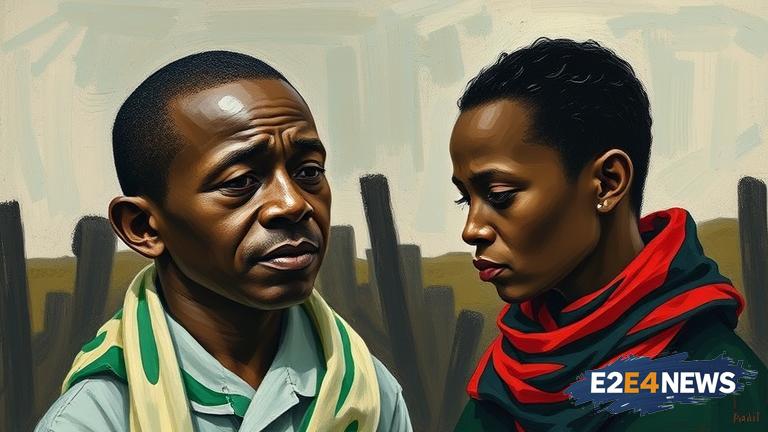Sierra Leone, a country with immense potential, is struggling to break free from the shackles of blind allegiance in its politics. This curse has been a major obstacle to the country’s development, as it prioritizes loyalty to individuals and parties over the nation’s interests. The phenomenon is deeply rooted in the country’s history, with many citizens blindly following their leaders without questioning their actions or policies. This has led to a culture of impunity, where leaders are not held accountable for their mistakes, and the country suffers as a result. The consequences of blind allegiance are far-reaching, with the country’s economy, education, and healthcare systems all bearing the brunt. The lack of critical thinking and analysis has also led to the proliferation of misinformation and propaganda, further exacerbating the problem. Furthermore, the emphasis on loyalty over competence has resulted in unqualified individuals being appointed to key positions, leading to poor governance and decision-making. The international community has also been criticized for its role in perpetuating blind allegiance, with some donors and partners prioritizing stability over accountability. However, there are signs of hope, with a growing number of citizens beginning to question the status quo and demand more from their leaders. Civil society organizations and the media have also been playing a crucial role in promoting transparency and accountability. To break the curse of blind allegiance, Sierra Leoneans must prioritize critical thinking and analysis, and demand more from their leaders. This requires a fundamental shift in the country’s culture, with citizens recognizing that their loyalty should be to the nation, not to individuals or parties. The government must also take steps to promote transparency and accountability, including strengthening institutions and ensuring that leaders are held accountable for their actions. Additionally, the international community must prioritize accountability over stability, and support efforts to promote good governance and human rights. In conclusion, the curse of blind allegiance is a major obstacle to Sierra Leone’s development, but it is not insurmountable. With a concerted effort from citizens, civil society, and the international community, the country can break free from this curse and build a brighter future for all. The journey will not be easy, but it is necessary if Sierra Leone is to realize its full potential. The country’s history has been marked by periods of progress and regression, but the current moment presents a unique opportunity for change. As the country moves forward, it is essential that citizens remain vigilant and continue to demand more from their leaders. The media and civil society must also continue to play a critical role in promoting transparency and accountability. Ultimately, the future of Sierra Leone depends on the ability of its citizens to break free from the curse of blind allegiance and build a more just and equitable society. This requires a fundamental transformation of the country’s politics, with a focus on promoting the common good over individual interests. The time for change is now, and Sierra Leoneans must seize this opportunity to build a brighter future for themselves and their children. The country’s development depends on it, and the consequences of inaction will be severe. Therefore, it is essential that citizens take an active role in promoting change and demanding more from their leaders. By working together, Sierra Leoneans can break the curse of blind allegiance and build a more prosperous and equitable society.
